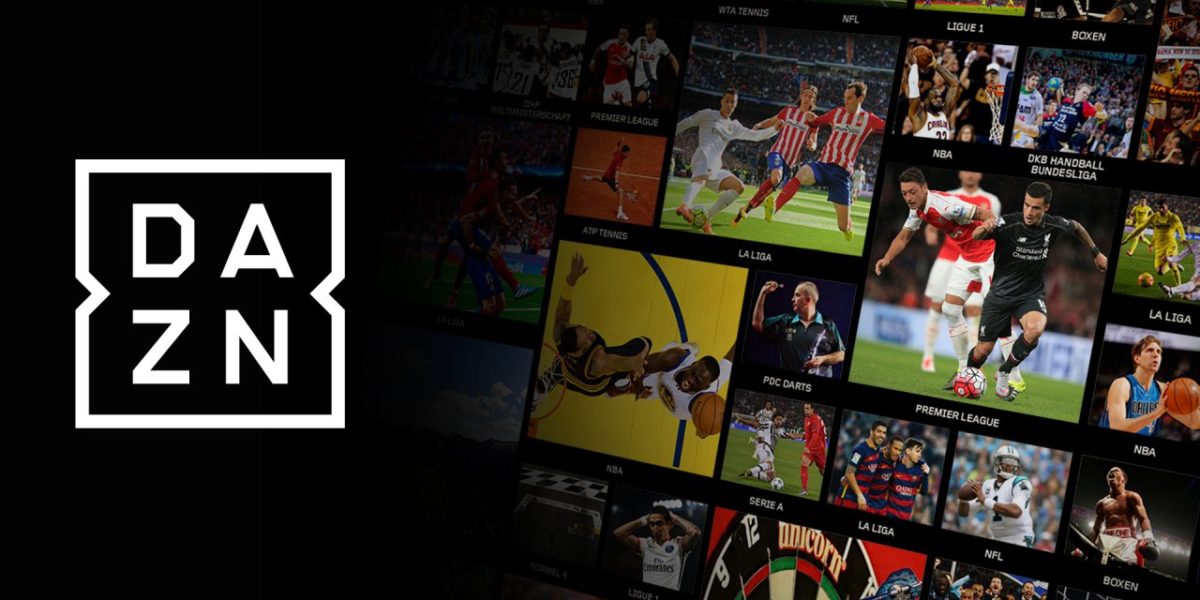This week we’ve exclusively spoken to Sarah Beattie, VP PR, Comms & New Markets at DAZN, to get to the bottom of the brand’s seismic market disruptions and rise to success.
What is DAZN (and how do we actually say it?!)
DAZN is a live sports subscription streaming service. Technically it’s pronounced ‘Da-Zone’ referring to ‘being in the zone’, which is the highest moment of sporting performance. We’ve decided to own our multiple pronunciations.
How and why did DAZN start?
DAZN is part of Perform group, which owns specialist companies covering everything you can think of when it comes to sport; from production, to content, media publishing to data companies such as Opta – it’s truly ‘field to fan’. With DAZN we wanted to flip the sports consumption model in favour of the fans; we wanted to do what Netflix and Spotify had done for TV and music. Sport is such a unifying activity, there was a real need for it to be democratised, and for fans to watch sport how they want rather than be dictated to. Basically, we took a look at the experience fans were receiving and went about addressing the issues one by one. From long contracts to pricey packages, channel restrictions which dictate broadcasting decisions, availability on multiple devices and the ability to sign up and cancel in just a handful of clicks. We simplified it all and brought to market a service that made sport more affordable and accessible than ever before.
When will UK consumers be able to benefit?
Sadly the UK won’t see the benefits quite yet. The terms and price of key rights mean it just isn’t right for us at the moment. We are already seeing lots of positivity and UK fan interest in what we are doing elsewhere; we would love to build enough demand for the service in future to force a change in the current rights cycle, meaning changes could be truly fan driven.
Why has DAZN managed to disrupt the market?
We’re under three years old, with no legacy business to protect, so we could enter the market and instantly address consumer trends with no baggage. We have also always been very data and tech driven right from the start, so this, combined with Perform group’s knowledge and long-standing strategic partnerships within the industry, means that we know what fans want and can deliver the experience.
Is there anyone else doing interesting things in the market right now?
AbemaTV in Japan and FuboTV in the US are examples of entirely internet-based TV services that have done a great job of aggregating relevant content they are completely device agnostic; ones to watch given the speed of customer acquisition. And we can’t forget Netflix who have really gone full steam ahead with producing original content as a differentiator which is something I think we can learn from.
How do you think the market will have changed in five years’ time?
I’m hoping that people will have seen a fundamental change in the way people are able to, and choose to, watch sports. I think there will also be more hyper personalisation. At the moment some large sports broadcasters have quite a blunt approach to personalisation which feels outdated. For example, promoting any premier league football match if you have a premier league package regardless of which team you normally watch. DAZN will be able to create much more tailored propositions and pre-event hype due to the amount of customer data we have and using Opta. We’ll know that if X has a corner in the first 5 minutes of a home game and X is in the starting line-up then the probability of Y scoring is 50%. This kind of build-up is the type of context that fans crave and we have the power to deliver it. Machine learning and the evolving nature of connected homes are really exciting; AR and VR will also play a role, but as to what that role is I don’t think anyone is quite sure yet!
Japan has been notoriously difficult to crack for other streaming brands; how did you overcome these category and format barriers?
In Japan it wasn’t just the case of getting rights to the J league and assuming fans would follow. Our deal was also a very clear commitment to upping the profile of the domestic league so that it can improve its global value and profile, and ultimately become more attractive to fans. We took our expertise to them such as in sports production, engaging fans via the club network and on social and using ambassadors to improve our profile and instil trust. We found that having a retail presence was really important and our partnership with DoCoMo was a turning point in that respect. Essentially we got to really know the market, we then built from there.


